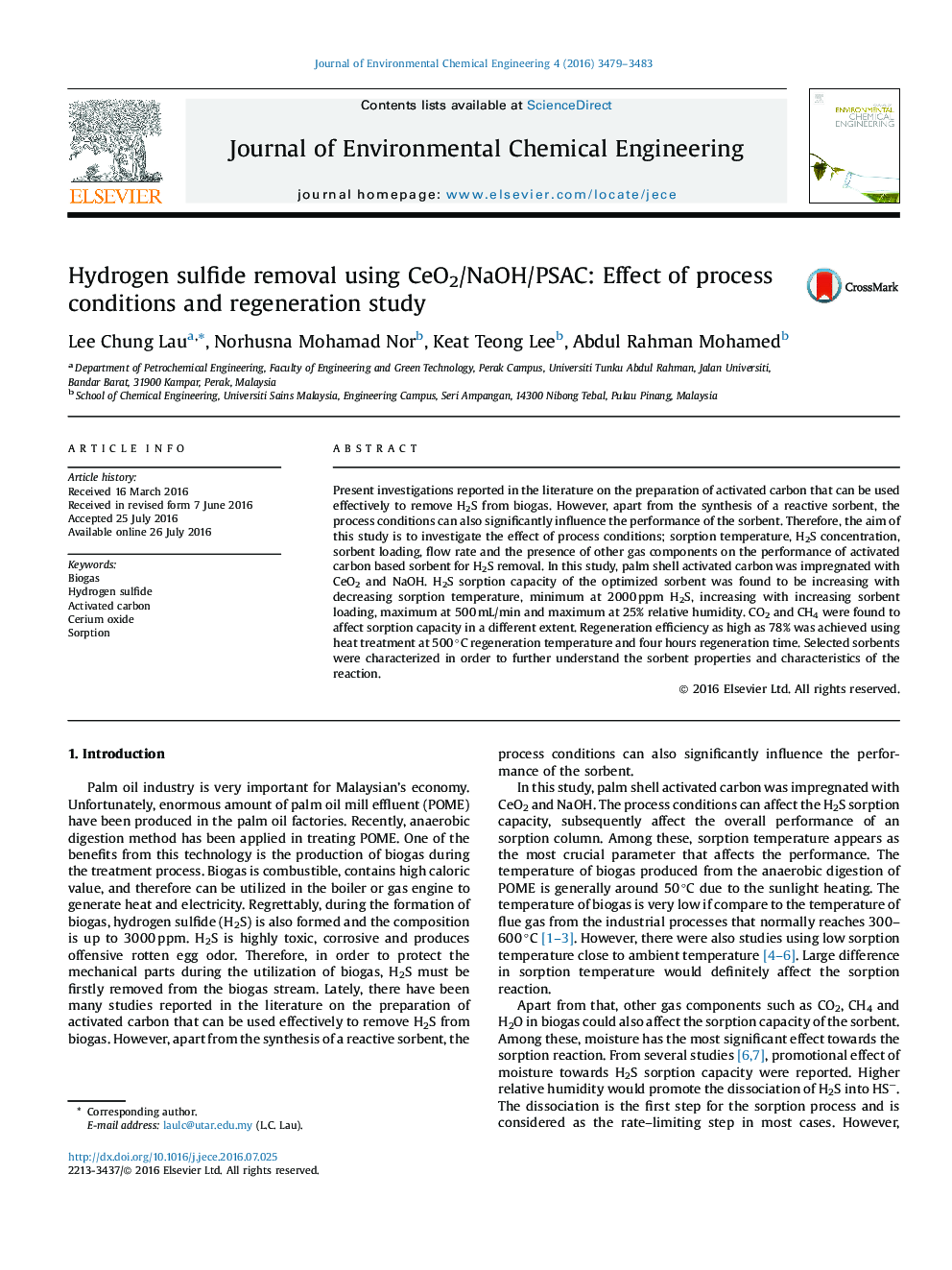| Article ID | Journal | Published Year | Pages | File Type |
|---|---|---|---|---|
| 221614 | Journal of Environmental Chemical Engineering | 2016 | 5 Pages |
Present investigations reported in the literature on the preparation of activated carbon that can be used effectively to remove H2S from biogas. However, apart from the synthesis of a reactive sorbent, the process conditions can also significantly influence the performance of the sorbent. Therefore, the aim of this study is to investigate the effect of process conditions; sorption temperature, H2S concentration, sorbent loading, flow rate and the presence of other gas components on the performance of activated carbon based sorbent for H2S removal. In this study, palm shell activated carbon was impregnated with CeO2 and NaOH. H2S sorption capacity of the optimized sorbent was found to be increasing with decreasing sorption temperature, minimum at 2000 ppm H2S, increasing with increasing sorbent loading, maximum at 500 mL/min and maximum at 25% relative humidity. CO2 and CH4 were found to affect sorption capacity in a different extent. Regeneration efficiency as high as 78% was achieved using heat treatment at 500 °C regeneration temperature and four hours regeneration time. Selected sorbents were characterized in order to further understand the sorbent properties and characteristics of the reaction.
